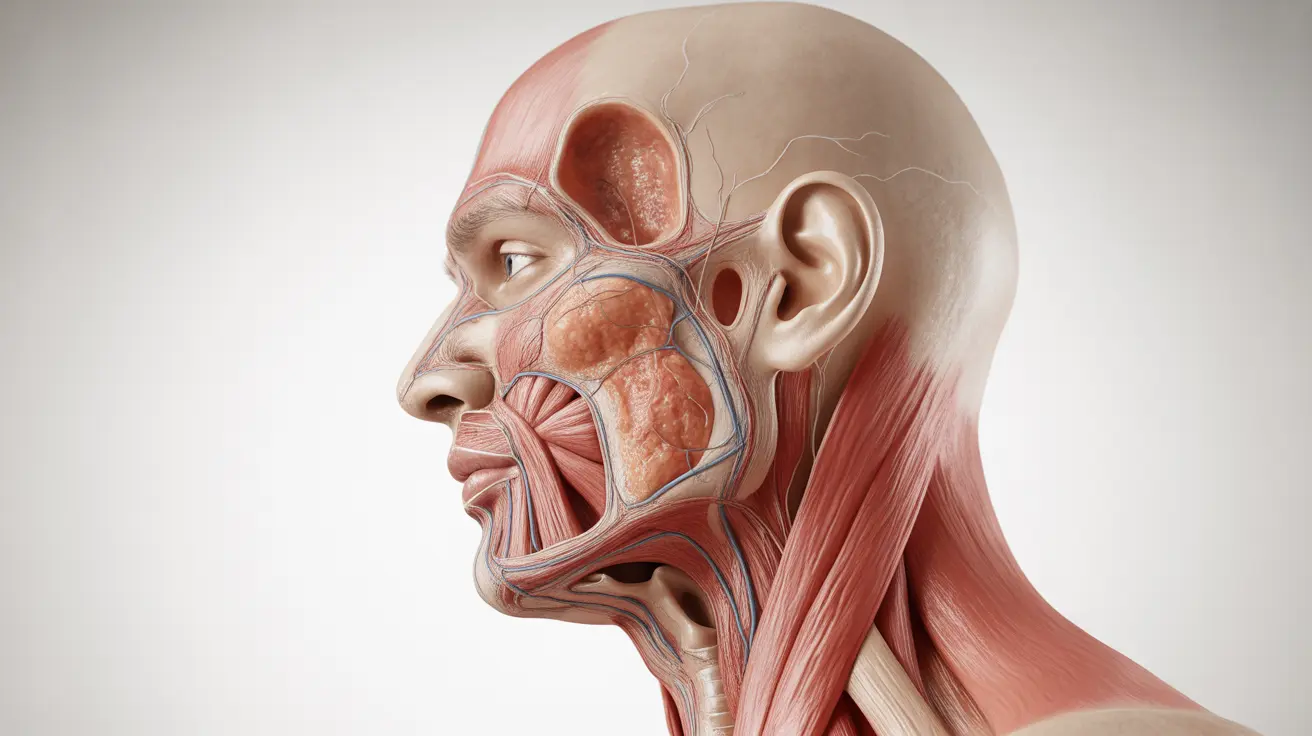Anaplastic large cell lymphoma (ALCL) is a rare but serious type of non-Hodgkin lymphoma that requires prompt medical attention. Recognizing the symptoms early can lead to better outcomes for those affected by this condition. This guide will help you understand the key warning signs and know when to seek medical help.
Common Signs and Symptoms of ALCL
ALCL typically presents with several characteristic symptoms that may develop gradually or appear more suddenly. Understanding these primary indicators can help with early detection and treatment.
Lymph Node Changes
The most noticeable early sign of ALCL often involves the lymph nodes:
- Painless swelling in lymph nodes
- Firm or rubbery nodes to the touch
- Enlarged nodes in the neck, armpit, or groin
- Nodes that don't shrink after several weeks
Skin Manifestations
ALCL can frequently affect the skin, presenting as:
- Red or purple patches
- Raised bumps or lesions
- Persistent rashes that don't respond to normal treatments
- Itching or tenderness in affected areas
Systemic Symptoms
Many people with ALCL experience systemic symptoms, often called B symptoms, which affect the entire body:
Night Sweats and Fever
Excessive sweating during sleep and unexplained fevers are common symptoms that shouldn't be ignored, especially when they occur alongside other ALCL indicators.
Weight and Energy Changes
Significant body changes often occur, including:
- Unexplained weight loss
- Persistent fatigue
- Loss of appetite
- Decreased energy levels
Breast Implant-Associated ALCL
A specific type of ALCL can develop in connection with breast implants, presenting unique symptoms:
- Swelling or fluid accumulation around the implant
- Asymmetry between breasts
- Pain or discomfort in the breast area
- Lumps in the breast or armpit
- Changes in breast shape or size
When to Seek Medical Attention
It's important to consult a healthcare provider if you experience:
- Persistent lymph node swelling lasting more than two weeks
- Unexplained fever that doesn't resolve
- Progressive weight loss without trying
- Any breast changes if you have implants
- Severe night sweats that disrupt sleep
Frequently Asked Questions
What are the common symptoms of anaplastic large cell lymphoma (ALCL) that I should watch for? The most common symptoms include enlarged lymph nodes, unexplained fever, night sweats, weight loss, fatigue, and skin changes such as rashes or lesions. These symptoms often appear gradually and persist over time.
How can I tell if swollen lymph nodes or a skin rash might be signs of ALCL? ALCL-related lymph nodes are typically painless, firm, and don't decrease in size after several weeks. Skin rashes associated with ALCL are often persistent, may appear as red or purple patches, and don't respond to typical treatments.
What symptoms are specific to breast implant-associated ALCL compared to other types? Breast implant-associated ALCL typically presents with swelling, fluid accumulation, or pain around the implant site. Other signs include asymmetry between breasts, changes in breast shape, and lumps in the breast or armpit area.
What causes night sweats, weight loss, and fatigue in patients with ALCL? These symptoms occur because ALCL affects the immune system and triggers inflammatory responses in the body. The cancer cells release substances that can cause systemic symptoms like night sweats, unexplained weight loss, and persistent fatigue.
When should I see a doctor if I experience symptoms like persistent fever, swollen lymph nodes, or chest pain related to ALCL? Seek medical attention if you have lymph node swelling that lasts longer than two weeks, unexplained fever, significant weight loss, persistent night sweats, or any breast changes if you have implants. Early evaluation is crucial for proper diagnosis and treatment.




